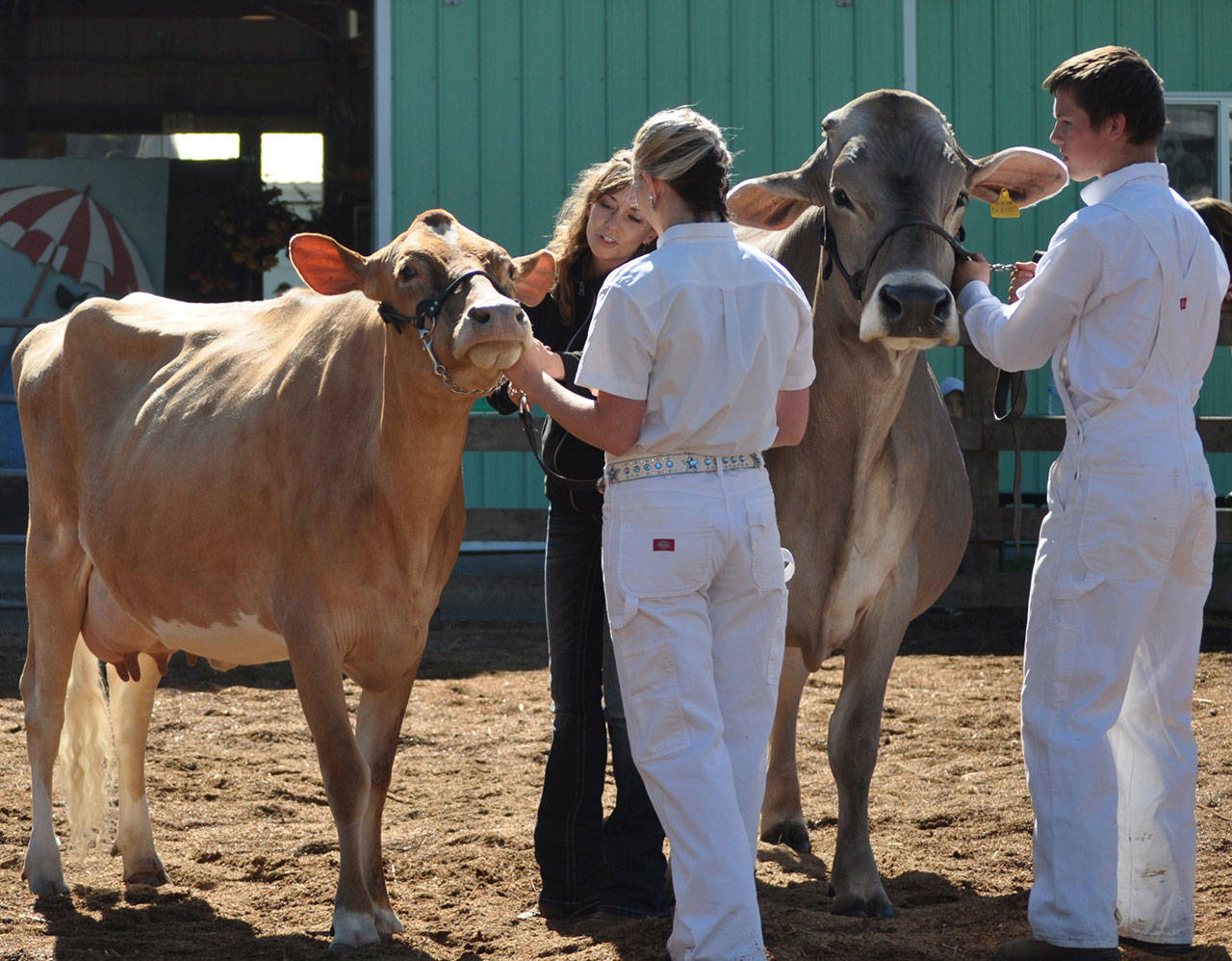SEQUIM — The North Olympic Land Trust will honor the WSU Extension with the 2017 Farmer of the Year award at its 18th annual 100-Mile Friends of the Fields Harvest Dinner on Sept. 17.
“WSU Extension is at the heart and soul of the farm economy in Clallam County,” said Tom Sanford, North Olympic Land Trust executive director.
“For over 100 years, they’ve been supporting the agricultural community, from building the next generation of farmers through their 4-H program to increasing education around environmental stewardship through their Master Gardener program.”
Tickets are available now for the 5 p.m. dinner at Sunland Country Club, 109 Hilltop Drive, Sequim.
The cost is $125 per person, or $150 after Sept. 5. Tables seat nine guests. Those who buy eight tickets can get the ninth one free. Tickets are expected to go quickly and won’t be sold at the door.
They are available at www.northolympiclandtrust.org or by calling 360-417-1815, ext. 4.
The harvest meal, with the theme “Know the Hands That Feed You,” will bring together the expertise of local chefs specialized in farm-to-table cuisine.
“The menu is built to really surprise the guests and allow them to experience something they likely never thought could be made with ingredients from local farms,” Sanford said.
Throughout the past 103 years, WSU Clallam County Extension has worked with farmers to strengthen and support local agriculture across Clallam County.
“What a tremendous honor this is,” said Cleo Rome, director of Clallam County Extension.
“The staff here is just so awesome and does so much good work, so I’m just really proud to see their work recognized.”
Each year, a handful of community members nominate the Farmer of the Year — an award honoring individuals and/or organizations that have positively and significantly impacted the local farm community.
WSU Clallam County Extension is joining a long list of honorees that have each “bolstered local agriculture,” Sanford said.
Last year’s award recipients were Salt Creek Farm owners Doug Hendrickson and Lee Norton as the first to implement Community Supported Agriculture (CSA) within the county. Others include but aren’t limited to farmers such as Nash Huber, Tom and Holly Clark, and Steve Johnson, as well as individuals such as Bob Caldwell and such organizations as the Clallam Conservation District.
WSU Clallam County Extension dates back to the Smith-Lever Act of 1914, which enabled the mechanism for ag-related research underway at land grant universities to be extended out into rural communities, Rome explained.
“Back then, about 50 percent of the population was engaged in farming full time,” she said. “Now that only 2 percent of the national population is engaged in farming, the face of the extension has changed, but we’re still really rooted in our ag communities.”
The extension service’s 4-H and Master Gardener programs are what Rome considers “legacy” programs, but a “core nugget,” of extension has been working with farmers in a technical capacity to help them with production issues, she said.
Depending on the problem or project, extension service staff can tap into the large pool of resources at the university.
“We can bring out faculty with the ability to do things such as on-farm variety trials like those done with Nash [Huber], or just recently, there was a plant pathologist out here working with a lavender farmer who was having an issue with disease.”
Additionally, the types of resources and support the extension service provides are tailored to the region. For example, the small size of many of the farms in Clallam County makes them unique from both a production and marketing standpoint, Rome said.
“Access to markets can really be the difference between a successful farm and one that ultimately is not,” she said. “Knowing this, we do a lot of work around helping farms connect to new markets in different ways.”
She added that a key part of the extension service’s success is partners such as the North Olympic Land Trust, food banks, the overall 4-H community, countless volunteers and the Clallam Conservation District, as well as regional partnerships in both Jefferson and Kitsap counties.
“We could not do what we do or operate without our incredible partnerships,” Rome said.
Although it’s only in its second year, one of the extension service’s collaborative programs Rome is particularly proud of is the farm-to-food-bank program.
“It’s a really exciting time because there are new partners from new sectors who are really becoming engaged with community health and food systems work,” Rome said.
“There’s all sorts of innovative work going on around the county, and here locally on growing the awareness about community food security.”
Community support at prior Harvest Dinners has helped conserve 520 acres of farmland on over a dozen farms in Clallam County, including the 60-acre Historic Ward Farm in early February, said Alana Linderoth, land trust spokeswoman.
“We were really moved by the recent community health assessment that shows access to fresh, healthy food as one of the biggest health concerns in Clallam County,” Sanford said. “The best way for us to provide consistent and secure access the healthy food is through healthy farms.”
Thanks to sponsorships from the Jamestown S’Klallam Tribe; Natural Systems Design; Suzi Schuenemann, broker at John L. Scott; Ennis Arbor Farm; Wind Rose Cellars; Olympic Lavender Co.; Sound Community Bank; Cedar Creek Dental Center; Lynne Tjomsland and Ina Jaffe; and Craft3, all proceeds from Harvest Dinner directly benefit local farmland conservation.
For more information about the extension service, see extension.wsu.edu/clallam or call 360-417-2279.


